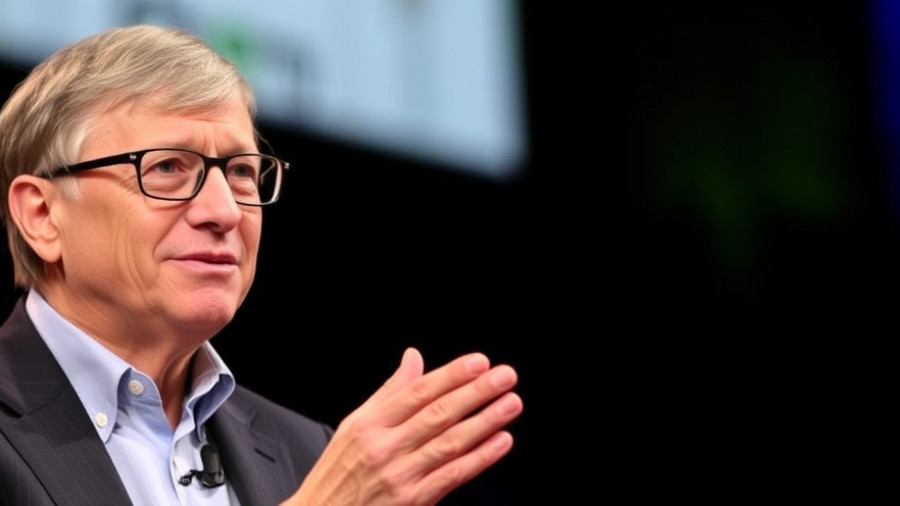
Is Climate Change Humanity's Greatest Threat? Gates Thinks Not
In a recent statement, tech magnate Bill Gates sparked a new debate regarding the priority of global challenges by suggesting a radical shift in focus from climate change mitigation to combating poverty and disease. The billionaire emphasized in his blog that while climate change poses serious risks, it will not lead to the extinction of humanity, a view that starkly contrasts with that of UN Secretary General António Guterres, who labeled missing the 1.5°C climate target as a monumental failure.
Poverty and Disease: The Persistent Shadows
Gates argues that the looming issues of poverty and disease have plagued humanity for centuries and will arguably remain more significant threats than climate change itself. During his address, Gates highlighted that the poorest populations are the most vulnerable to climate impacts; however, they are also struggling with the daily burdens of disease and poverty. He believes that by allocating resources to tackle these enduring issues, we can elevate living standards globally.
Rethinking Our Approach to Climate Action
Gates' pivot comes at a crucial moment, just before the COP30 climate summit set to take place in Brazil, where world leaders will discuss strategies to address climate change. Instead of focusing primarily on emissions targets and temperature controls, Gates advocates for a broader metric: improving lives. This perspective encourages policymakers to reconsider how climate solutions can be integrated with efforts to improve health and economic opportunities for the underprivileged.
The Divided Perspectives on Climate Action
The tension between Gates' approach and the UN’s message reflects a growing divide in how to best address the climate crisis. Guterres has insisted that failing to address climate change will lead to catastrophic events, including potential tipping points in ecosystems, such as the loss of the Amazon rainforest. He stresses that without immediate and concerted efforts to lower emissions, the impacts of climate change may spiral out of control.
Future Insights: Combining Climate Efforts with Humanitarian Goals
Gates is not rejecting climate action; rather, he suggests that the battle against warming should not overshadow the fight against disease and poverty. Drawing on his experience as the co-founder of the Gates Foundation, he believes that effective climate strategies can go hand in hand with human development initiatives. Each tenth of a degree prevented in warming can have significant benefits, particularly in vulnerable regions.
The Call to Action: Why This Matters to Us
As homebuyers, sellers, and property investors, understanding how socioeconomic issues like poverty and disease intersect with climate initiatives is vital. Engaging in practices that enhance sustainability in properties not only addresses environmental concerns but also uplifts communities. It's about making informed choices that prioritize long-term well-being and stability for everyone.
In conclusion, Gates challenges us to see beyond an isolated approach to climate change. By investing in public health and economic development, we can foster resilience against a multitude of challenges, including those posed by an evolving climate. Together, we can shape a future that integrates sustainable living with a commitment to uplifting the most vulnerable among us. Let's strive to improve lives, not just reduce emissions.
 Add Row
Add Row  Add
Add 





Write A Comment